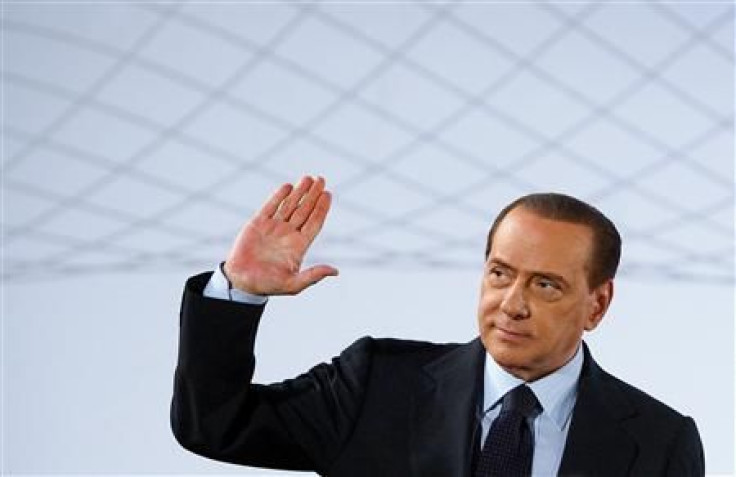Silvio Berlusconi to Resign

Italian Prime Minister Silvio Berlusconi has reportedly agreed to step down, after conferring with President Giorgio Napolitano.
However, the actual departure will occur only after the Rome parliament approves a key economic reform package that the government has been mandated by European officials to approve in order to tackle the country’s huge debt.
The Daily Telegraph is speculating he will quit by Nov. 15.
The development comes after Berlusconi won a crucial budget vote in parliament, but lost his majority in the chamber (320 opposition MPs abstained from voting).
Berlusconi had been under extreme pressure from both allies and opponents to quit as the yield on 10-year Italian sovereign bonds reached another euro-era record high of 6.76 percent, thereby placing even more pressure on Berlusconi to quit and strongly suggesting that the market doesn’t think Italy can tackle its nearly two trillion euro public debt.
Jan Randolph, head of sovereign risk analysis at IHS Global Insight, in London, considered what the near future may hold for Italy.
“It will be up to the Italian president to see whether a new coalition government can be formed. It is possible that a broad National Unity government headed by a respected technocrat like ex-EU commissioner Mario Monti could be formed, or new elections will have to be held,” he said.
Randolph warned, however, that Italy’s problems won't nearly be solved by Berlusconi’s departure
“Italy will not be out of the heat of bond markets until a solid and stable government actually implements austerity and undertakes reforms with strong credible leadership,” he noted. “Only after this happens will the ECB come in to support Italian bonds, rewarding measures taken to improve credit-worthiness. “
© Copyright IBTimes 2024. All rights reserved.











